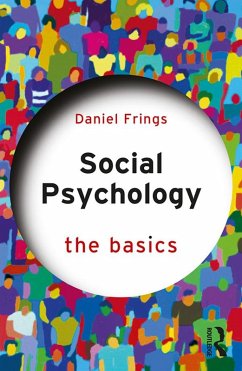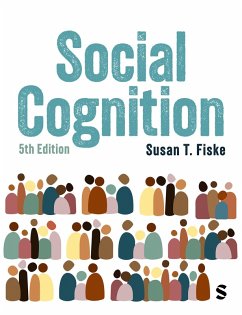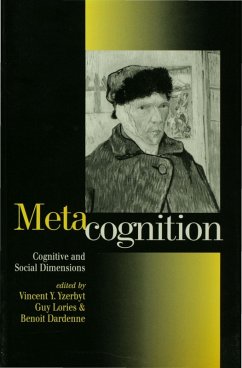
Handbook of Theories of Social Psychology (eBook, PDF)
Collection: Volumes 1 & 2
Redaktion: Lange, Paul A. M. Van; Higgins, E Tory; Kruglanski, Arie W.
Versandkostenfrei!
Sofort per Download lieferbar
185,95 €
inkl. MwSt.
Weitere Ausgaben:

PAYBACK Punkte
93 °P sammeln!
Providing a comprehensive exploration of the major developments of social psychological theories that have taken place over the past half century, this innovative two-volume handbook is a state of the art overview of the primary theories and models that have been developed in this vast and fascinating field.Authored by leading international experts, each chapter represents a personal and historical narrative of the theory's development including the inspirations, critical junctures, and problem-solving efforts that effected theoretical choices and determined the theory's impact and its evoluti...
Providing a comprehensive exploration of the major developments of social psychological theories that have taken place over the past half century, this innovative two-volume handbook is a state of the art overview of the primary theories and models that have been developed in this vast and fascinating field.
Authored by leading international experts, each chapter represents a personal and historical narrative of the theory's development including the inspirations, critical junctures, and problem-solving efforts that effected theoretical choices and determined the theory's impact and its evolution. Unique to this handbook, these narratives provide a rich background for understanding how theories are created, nurtured, and shaped over time, and examining their unique contribution to the field as a whole. To examine its societal impact, each theory is evaluated in terms of its applicability to better understanding and solving critical social issues and problems.
Authored by leading international experts, each chapter represents a personal and historical narrative of the theory's development including the inspirations, critical junctures, and problem-solving efforts that effected theoretical choices and determined the theory's impact and its evolution. Unique to this handbook, these narratives provide a rich background for understanding how theories are created, nurtured, and shaped over time, and examining their unique contribution to the field as a whole. To examine its societal impact, each theory is evaluated in terms of its applicability to better understanding and solving critical social issues and problems.
Dieser Download kann aus rechtlichen Gründen nur mit Rechnungsadresse in A, D ausgeliefert werden.














